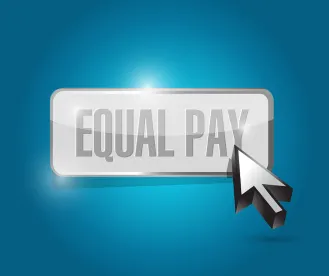The pay transparency trend has reached Illinois. House Bill (HB) 3129 amends the Illinois Equal Pay Act of 2003 by requiring employers with at least fifteen employees to include the pay scale and benefits in any job posting by January 1, 2025. Employers may meet this requirement by including a hyperlink to a publicly viewable webpage that includes pay scale and benefits information. The benefits posting requirement is met when “a relevant and up-to-date general benefits description in an easily accessible, central, and public location on an employer’s website and referring to this posting in the job posting.”
Under HB3129, “pay scale” means the wage or salary, or range of the same, that “the employer reasonably expects in good faith to offer.” Benefits and other compensation include but are “not limited to, bonuses, stock options, or other incentives.” Pay scale is set by reference to “any applicable pay scale, the previously determined range for the position, the actual range of others currently holding equivalent positions, or the budgeted amount for the position, as applicable.”
Quick Hits
- Employers with fifteen or more employees must include pay scale and benefits information in job postings.
- HB3129 defines “pay scale and benefits” as “the wage or salary, or the wage or salary range, and a general description of the benefits and other compensation … the employer reasonably expects in good faith to offer for the position.”
- The amendments to the Illinois Equal Pay Act will take effect on January 1, 2025.
Additionally, employers will be required to communicate any opportunity for promotion to all current employees, for jobs that will either be performed in Illinois or supervised by someone located in Illinois, by no later than fourteen calendar days after the job is posted externally. This communication to current employees may include “announc[ing], post[ing], or otherwise mak[ing] known” the job opportunity. Current employees in positions designated as “exempt from competitive selection” by the State of Illinois are excepted from this employer requirement for internal posting.
Employers that “engage[] a third party to announce, post, publish, or otherwise make known a job posting” will be required to comply with the amended Illinois Equal Pay Act by providing the pay scale and benefits, or a hyperlink to the pay scale and benefits, to the third party.
In sum, an Illinois employer or employment agency now must:
- include pay scale and benefits (wage and salary) information in all job postings;
- announce opportunities for promotion to current employees by no later than fourteen calendar days after the employer advertises the job to prospective external employees; and
- ensure that any third-party advertising has the information regarding the pay scale and benefits.
If an employer did not make pay scale and benefits information available to the applicant, through public or internal postings for the job, the employer “shall disclose … the pay scale and benefits to be offered for the position prior to any offer or discussion of compensation and at the applicant’s request.” Additionally, employers “shall not refuse to interview, hire, promote, or employ, and shall not otherwise retaliate against, an applicant for employment or an employee for exercising any rights.”
The Illinois Department of Labor (IDOL) may initiate investigations regarding compliance with the amendments under HB3129 at its discretion or upon receiving a complaint from any individual (within one year of the violation). If the IDOL determines that a violation occurred, an employer must remedy the violation within seven days of receiving notice of the violation and demonstrate to the IDOL that the violation was remedied; otherwise, the employer will be subject to civil penalties. Excluding duplicative posts, each job posting not in compliance with the act will be considered a separate violation that could incur civil penalties. Different penalties will apply, depending upon whether the IDOL assesses that the job posting is active or not and whether the employer committed prior violations of the act.





 />i
/>i
